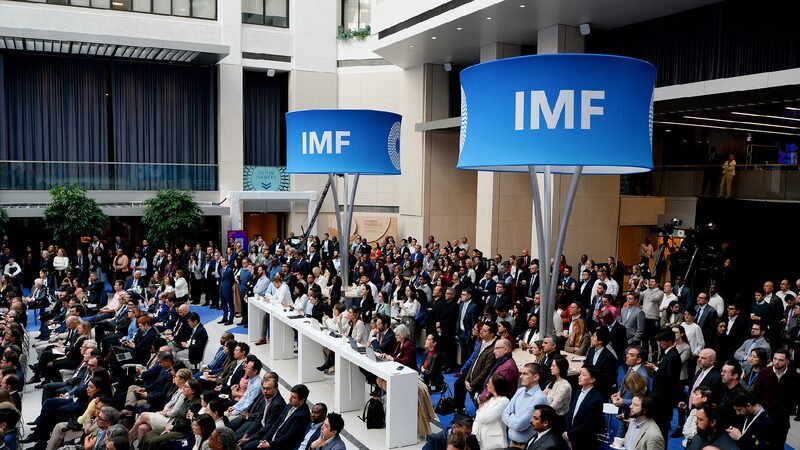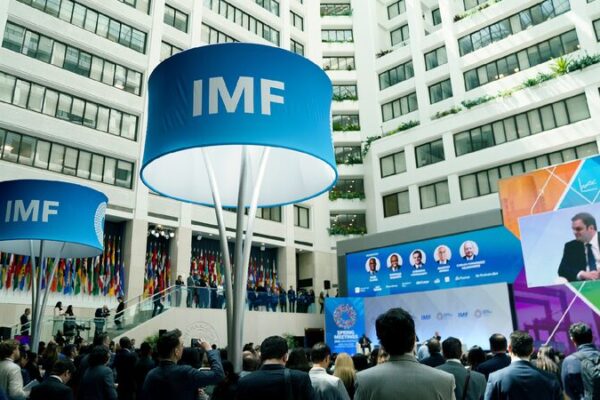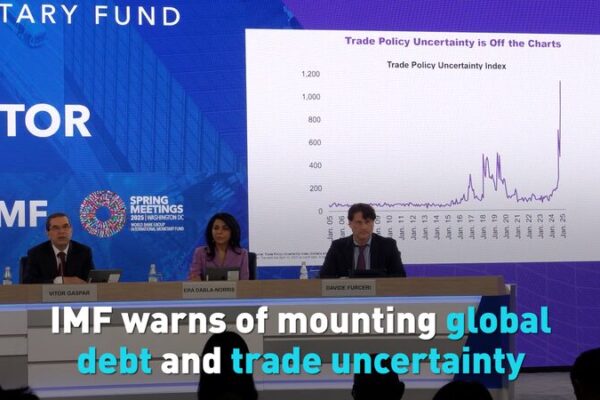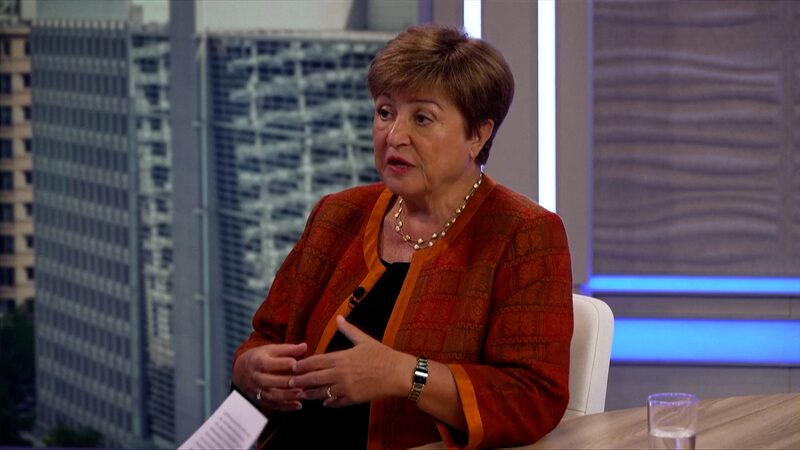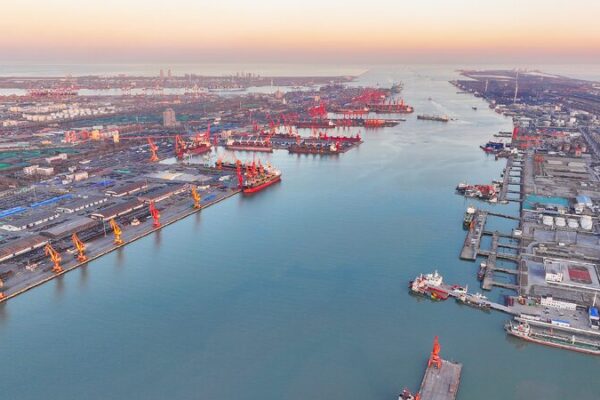The International Monetary Fund (IMF) has cut its global economic growth forecast for 2025, warning that rising trade tensions and uncertainty are weighing down the world’s economy.
In its latest report, the IMF predicts that the global economy will grow by just 2.8% in 2025 and 3% in 2026. That’s a downgrade from its earlier forecast of 3.3% and a slowdown compared to the average growth of 3.7% between 2000 and 2019.
Why Does This Matter?
Slower economic growth can affect everyone, including young people in the Global South. It can mean fewer job opportunities, slower wage growth, and less investment in education and technology.
Advanced economies like the United States and countries in the euro area are expected to see significant slowdowns. U.S. growth is now expected to be 1.8% in 2025, nearly a full percentage point less than the IMF predicted earlier this year. Growth in the euro area is expected to slow to 0.8%.
Impact on Developing Countries
Emerging markets and developing economies are also facing slower growth, predicted at 3.7% in 2025 and 3.9% in 2026. This slowdown is due to weaker demand, uncertainty, and new trade restrictions that make it harder for countries to do business with each other.
Trade Tensions Rise
The IMF points out that the U.S. has increased tariffs, or taxes on imports, to their highest levels in a century. These tariffs affect goods like industrial metals and automobiles and have led to retaliation from other countries. This increase in trade barriers is changing how countries interact economically.
What Are the Risks?
The IMF warns that these trade tensions could lead to other problems, like financial market instability, currency fluctuations, debt crises in low-income countries, and social unrest due to higher living costs.
What Can Be Done?
The IMF is calling for countries to work together to restore stability. It suggests that governments create clear and predictable trade policies, strengthen their financial systems, and implement reforms to make their economies more resilient in the long term. Central banks should also adjust their policies carefully to manage inflation while supporting economic growth.
For young people, especially in the Global South, global economic policies and cooperation can have real impacts on education, employment, and overall quality of life. Understanding these trends is important for navigating the future.
Reference(s):
IMF slashes global growth forecast amid rising trade tensions
cgtn.com
